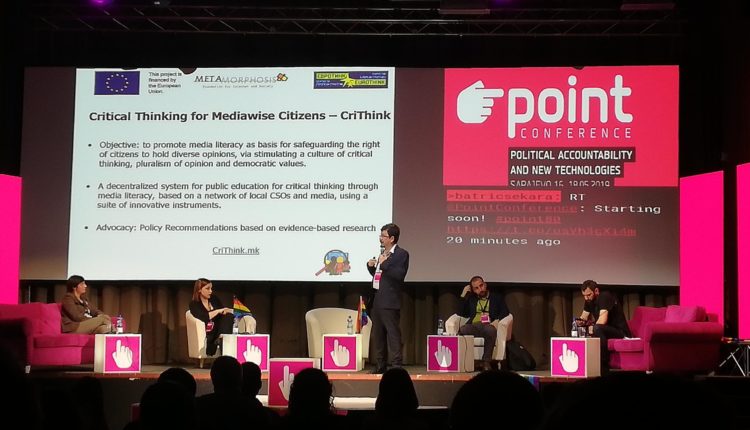
International conference on Political Accountability and New Technologies – POINT
One in five national elections held worldwide since 2016 were potentially influenced by foreign interference, according to new research. An analysis of 97 national elections and 31 referenda that have been held since the 2016 US presidential election identified 20 countries with clear examples of foreign interference.
These incidents ranged from cyber attacks to voter registration systems, to DDoS attacks to national election commissions, to the use of Facebook to spread disinformation and discourage voter turnout, noted the joint report from the Australian Strategic Policy Institute (ASPI) and IT industry professional association ACS.
“Democracies around the world have been struggling to grapple with foreign interference from state actors during elections,” said International Cyber Policy Centre head Fergus Hanson. “More empirical data means they can respond in a more targeted way calibrating policy responses to the likely risk, methods and adversary.”
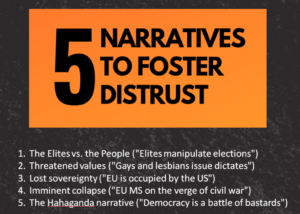 We already know the threat of misinformation, which is reflected in the fact that over 70 per cent of Europeans fear the effects. When facts themselves become the focus of a massive, coordinated attack, not only political parties but our entire lifestyle are at risk, says Wojciech Przybylski, Editor-in-chief of Visegrad/Insight and chairman of the Res Publica Foundation.
We already know the threat of misinformation, which is reflected in the fact that over 70 per cent of Europeans fear the effects. When facts themselves become the focus of a massive, coordinated attack, not only political parties but our entire lifestyle are at risk, says Wojciech Przybylski, Editor-in-chief of Visegrad/Insight and chairman of the Res Publica Foundation.
We need new transparency laws that would limit a fatal impact of obscure online bots, he adds. Timothy Garton Ash gives a practical example of how this would work, describing it as akin to “food labelling” for information: “Even a modest mechanism of transparency as self-identification is a good start.”
Resilience
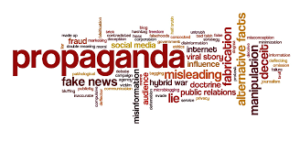 A new consensus is emerging that democracy is less a resilient political system than a free-fire zone in a broader information war, political scientist Henry Farrell and internet security expert Bruce Schneier contend in “Democracy’s Dilemma.” Such a “despairing, technologically determinist response is premature,” as democratic institutions can be reformed and repaired. To pursue this project of repair, we need a better understanding of democracy’s resiliency in the face of information attacks, they argue in The Boston Review:
A new consensus is emerging that democracy is less a resilient political system than a free-fire zone in a broader information war, political scientist Henry Farrell and internet security expert Bruce Schneier contend in “Democracy’s Dilemma.” Such a “despairing, technologically determinist response is premature,” as democratic institutions can be reformed and repaired. To pursue this project of repair, we need a better understanding of democracy’s resiliency in the face of information attacks, they argue in The Boston Review:
Building that understanding is harder than it might seem. Our theories have mostly assumed that democracies are better off when there is less control over information. ….We need new frameworks to understand the limits of this optimistic view. Changes in technology have made speech cheap, and the bad guys have figured out that more speech can be countered with even more bad speech. In this world, the easy flow of information can cause trouble for democracy.
 But recent research suggests that foreign powers’ efforts to interfere with the politics of another country by spreading strategic disinformation have no real effect on policies or the balance of power in the targeted country. Voters should not be too concerned that attempted interference would actually influence an election or other political outcomes, according to Alexander Lanoszka, assistant professor of political science at the University of Waterloo.
But recent research suggests that foreign powers’ efforts to interfere with the politics of another country by spreading strategic disinformation have no real effect on policies or the balance of power in the targeted country. Voters should not be too concerned that attempted interference would actually influence an election or other political outcomes, according to Alexander Lanoszka, assistant professor of political science at the University of Waterloo.
His paper cites three key obstacles that stand in the way of campaigns of disinformation:
- a fundamental skepticism within potentially targeted countries when an adversary broadcasts information;
- the prevalence of deeply ingrained identifies and political attitudes among targeted political elites and ordinary citizens;
- the countermeasures that a targeted country can enact—such as the Canadian government’s forewarning of potential election interference.
“Great powers like Russia will of course push narratives about its foreign relations that are not only self-serving, but will also misrepresent true intentions, especially if they are up to no good,” said Lanoszka.

DFRLab
Far-right populist German party AfD (Alternative for Germany) received more engagement on its official Facebook page than any other German party in the run-up to May’s European Parliament (EP) elections, according to an open-source investigation, the Atlantic Council’s DFRLab reports:
The European Union (EU) has recently faced the increasing influence of Eurosceptic, far-right populist parties in the upcoming EP elections. As the most populous country in the EU, Germany holds the most seats in the EP, and a favorable election result for the AfD would thus have a significant impact on the political composition of the EU’s primary legislative body. The AfD is infamous for its Eurosceptic and far-right positions, particularly around immigration, and currently holds the third most seats (91 of 709 total) of the parties in the Bundestag, the German federal parliament…. READ MORE
Metamorphosis works on debunking disinformation based on combining expertise in the sphere of digital rights with promotion of professional journalism and support for media pluralism. These initiatives are integral part of its programs promoting accountability of public officials, politicians and others stakeholders, including the media through watchdog services, said Director for Partnership and Resource Development Filip Stojanovski.
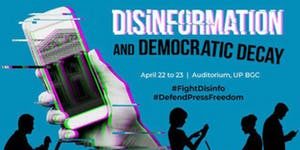 The Metamorphosis approach combines the insights from the work of the Truthmeter, established in 2011 with help from the National Endowment for Democracy, the Media Fact-Checking Service, and of the Critical Thinking for Mediawise Citizens – ChriThink.mk, to form synergies with Metamorphosis-founded media outlets Portalb.mk and Meta.mk, complementing each other’s work and providing engagement of various target groups, he told the international conference on Political Accountability and New Technologies – POINT (above) in Sarajevo, Bosnia and Herzegovina:
The Metamorphosis approach combines the insights from the work of the Truthmeter, established in 2011 with help from the National Endowment for Democracy, the Media Fact-Checking Service, and of the Critical Thinking for Mediawise Citizens – ChriThink.mk, to form synergies with Metamorphosis-founded media outlets Portalb.mk and Meta.mk, complementing each other’s work and providing engagement of various target groups, he told the international conference on Political Accountability and New Technologies – POINT (above) in Sarajevo, Bosnia and Herzegovina:
This combined work counters the flood of disinformation stemming from domestic and foreign malign influences, and includes an ongoing NED-supported project addressing cross-border disinformation related to the political developments within North Macedonia and their reflection in the neighboring Balkan countries. These efforts continue to serve as the nexus of network of cooperation consisting of dozens other media outlets, building bridges across ethnic and linguistic divides and driving innovation in the media sphere. They streamline watchdog role of civil society organizations and media based on the best practices and quality standards of the International Fact-Checking Network.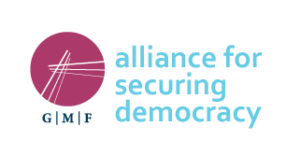
The Kremlin’s use of malign finance to undermine democracy
Alliance for Securing Democracy Director Laura Rosenberger will testify before the House Committee on Foreign Affairs’ Subcommittee on Europe, Eurasia, Energy, and the Environment on “Undermining Democracy: Kremlin Tools of Malign Political Influence.” Rosenberger will discuss financial and economic vectors of Russia’s interference within the context of its wider authoritarian toolkit. You can watch the testimony live at 10:00 a. m. on Tuesday, May 21 here.







